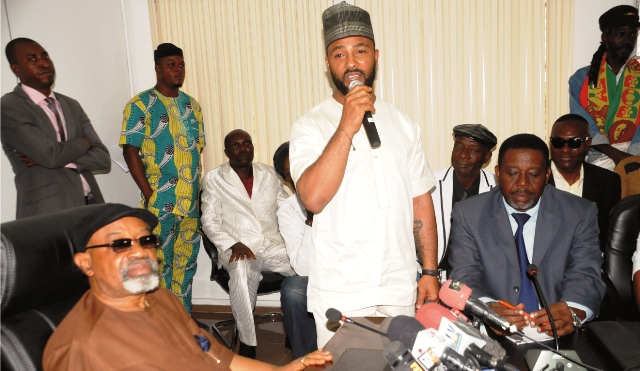Business
Public Spending: FG Assures On Discipline, Accountability

The Federal Government said it would continue to ensure discipline and accountability in the spending of public funds.
The Minister of Finance, Mrs Kemi Adeosun made the remark at a 2-day retreat on Revenue Generation in Kano yesterday.
The Tide reports that the retreat was organised by the Federal Ministry of Finance as part of renewed effort to facilitate increased revenue generation to states and the federal governments
She said the measure was necessary in order to ensure maximum utilisation of public funds for provision of the much needed infrastructure in the country.
According to her, the government is committed to identifying all sources of revenue in view of the dwindling oil revenue.
The Minister said the country could not continue to operate as an old economy in view of the daunting economic challenges bedevilling the country.
“Oil must be down played in the economy of Nigeria and must also be down played in the revenue of Nigeria.
“Nigeria must look inward to improve its revenue base. We must give suggestions on the way forward in the interest of the country, “ she said.
In his keynote address, the state governor, Dr Abdullahi Ganduje, said the state government had taken measures aimed at improving the revenue base of the state.
He said, part of the measures taken included the restructuring of the state internal revenue board with a view to ensuring optimum performance.
According to him, the government had also identified various sources of revenue generation such as tenement rate, land use charges as well as capital gain tax and withholding tax among others.
He also disclosed that the state government had engaged the services of technical consultants to assist the state in the collection of the revenue.
“We have also opened a single revenue account where all internally generated revenue accruable to the state are being channelled,” he said.
Earlier in his remarks, the Director, Special Projects and retreat Coordinator, Mohammed Dikwa, said the retreat was aimed at addressing the challenges in revenue generation in the country following the drastic fall in oil price.
The Tide reports that the retreat, which is being attended by revenue officers of various MDAs and other relevant stakeholders, has its theme: Enhancing Revenue Generation for Sustainable National Development.
Business
Agency Gives Insight Into Its Inspection, Monitoring Operations

Business
BVN Enrolments Rise 6% To 67.8m In 2025 — NIBSS

The Nigeria Inter-Bank Settlement System (NIBSS) has said that Bank Verification Number (BVN) enrolments rose by 6.8 per cent year-on-year to 67.8 million as at December 2025, up from 63.5 million recorded in the corresponding period of 2024.
In a statement published on its website, NIBSS attributed the growth to stronger policy enforcement by the Central Bank of Nigeria (CBN) and the expansion of diaspora enrolment initiatives.
NIBSS noted that the expansion reinforces the BVN system’s central role in Nigeria’s financial inclusion drive and digital identity framework.
Another major driver, the statement said, was the rollout of the Non-Resident Bank Verification Number (NRBVN) initiative, which allows Nigerians in the diaspora to obtain a BVN remotely without physical presence in the country.
A five-year analysis by NIBSS showed consistent growth in BVN enrolments, rising from 51.9 million in 2021 to 56.0 million in 2022, 60.1 million in 2023, 63.5 million in 2024 and 67.8 million by December 2025. The steady increase reflects stronger compliance with biometric identity requirements and improved coverage of the national banking identity system.
However, NIBSS noted that BVN enrolments still lag the total number of active bank accounts, which exceeded 320 million as of March 2025.
The gap, it explained, is largely due to multiple bank accounts linked to single BVNs, as well as customers yet to complete enrolment, despite the progress recorded.

